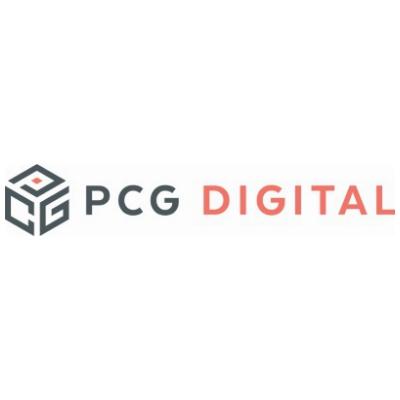Fintech
Nightfood: Helping America Rest Easier, One Scoop at a Time

One pioneering small-cap snack company holds the key to a billion-dollar opportunity where nutrition and sleep intersect: Sleep-Friendly(TM) ice cream for America’s 200 million nighttime snackers
New York, New York–(Newsfile Corp. – June 24, 2021) – PCG Digital — Let’s face it, almost everybody snacks at night. Snacking is comforting after a long day, a way to satisfy cravings when we’re tired, stressed or when our emotions get the better of us. But it’s not just emotional. Recent research indicates we’re actually biologically hard-wired to crave more, and eat more, at night.
Americans consume 800 million nighttime snacks each week – and that’s just between dinner time and bedtime. With over 80% of us indulging regularly in the evening, it’s safe to say we’re a nation of snackers.
Everyday life presents us with excuses to snack, whether it’s driven by boredom, our emotional state, procrastination, or the fact that we may actually be hungry. In a post-pandemic world, our snacking habits have only increased, as schedules have changed, throwing even more delicious temptations our way.
According to the Food Network, increases in remote work and the resulting lack of day-to-day structure has eliminated scheduled mealtimes and increased unhealthy snacking. One in four Americans are currently working remotely, and by 2025, a projected 36.2 million will be working from home. For these people, the ‘new normal’ – days spent at home with easy access to the fridge – has wreaked havoc on people’s eating habits.
In a traditional office setting, employees typically eat breakfast while commuting to work, take a lunch break and eat dinner at the end of the workday. That schedule doesn’t exist in remote environments, making mealtimes erratic and encouraging late-night snacking.
We can all agree that snacking isn’t going away any time soon, so how can we do better? Unhealthy snacks are typically quick, easy and fun to eat, while more nutritious options are often time-consuming to prepare, and less enjoyable and satisfying than their less healthy counterparts.
That’s why the most popular nighttime snacks are chips, cookies, and ice cream. These choices are not only unhealthy, but experts warn they have a disastrous impact on our sleep quality.
Enter Nightfood.
Setting up for substantial growth by helping us snack better at night
Imagine a world where ice cream is not only good for you, but actually formulated to support better quality sleep, provide foundational nutrition and satisfy even the strongest of cravings. Trading on the OTCQB under the symbol NGTF, Nightfood is a fast-growing better-for-you snack company that is tackling the growing nighttime snacking problem.
Nightfood, and its team of leading sleep and nutrition experts, developed Nightfood ice cream specifically for nighttime consumption and better sleep. For the estimated 20 million people eating ice cream on any given night, Nightfood’s Sleep-Friendly™ nutritional profile means less sugar, less fat, and fewer calories than regular ice cream. Plus, it has more casein protein and prebiotic fiber, as well as added vitamins and minerals that help with sleep and recovery.
Even better, you can find it at your local Walmart, Albertson’s, Kroger and any number of other grocery retailers. Nightfood has now secured distribution in almost 2,000 stores across the country. And soon, you may even see it in the lobby grab-and-go shop in your hotel on your next business trip.
Well-positioned to meet development objectives
Nightfood Holdings Inc. (OTCQB: NGTF) is a pioneering growth-stage company taking aim at the $50 billion night time snacking market as well as the global functional food market which is projected to reach $309 billion by 2027. The Company offers an attractive value proposition with its award-winning product, strong management team, clean balance sheet and major corporate initiatives underway.
The Company closed a $4.5 million round of financing in April 2021, adding more than $1.4 million in cash to its balance sheet and eliminating 100 percent of its debt, including all convertible notes. The operating capital will be used to pursue a number of strategic commercial opportunities.
In a recent shareholder letter, Nightfood Founder and CEO Sean Folkson mentioned the company “had almost doubled our fiscal 2020 revenue with more than one month remaining in the year. With replenishment orders shipping weekly, we have now surpassed $1 million in gross fiscal year sales for the first time in Nightfood’s history, and we have more than doubled last year’s net revenue. This current quarter’s revenues have been our highest to date, and this current year will also be our highest to date.”
Notably, Nightfood has secured distribution and product placement with key national retailers including Walmart, Kroger and Albertson’s. The Company also retails through its consumer website: www.nightfood.com.
Poised to take market share by owning a day-part
A 2012 study published in the American Journal of Clinical Nutrition assessed eating patterns and the health risks associated with behaviors such as skipping breakfast and snacking finding that they affect sleeping patterns and can cause weight gain and other illnesses such as diabetes.
A Harris Poll online survey which examined nighttime snacking and sleep quality found that more than half of those snacking at night associated their behavior with feelings of guilt, unhealthiness, and considered their snacking a major challenge. Scientific research suggests we are hardwired to seek out sweet, salty and calorie-dense foods later in the day. Eating those foods in the evening makes our brain’s reward centers light up, releasing dopamine and making us feel pleasure. It is a powerful biological drive that is hard to ignore – but choosing healthier snacks can help late night snackers achieve a balance.
The detrimental effects of late-night snacking have more to do with what people are eating than when. That’s where Nightfood ice cream comes in. Medical experts agree that consuming excessive sugar and carbohydrate-rich foods before bedtime can negatively affect sleeping patterns.
Nightfood’s Full Moon Vanilla ice cream has only 8 grams of sugar per serving. That’s over 70% less sugar than the leading brands. Ben and Jerry’s vanilla has 27 grams of sugar per serving. Haagen Dazs is even sweeter at 32 grams. Nightfood is in a league of its own, packed with more protein, prebiotic fiber, and added magnesium, calcium, zinc, and vitamin B6 to support sleep, with no artificial sweeteners or high-fructose corn syrup.
With consumers seeking healthier options and also valuing better sleep, it’s no surprise that global ice cream giant Unilever has recently joined the quest to better understand the intersection of diet and sleep. The organization recently initiated a year-long research study to see how better sleep can be attained through nutrition.
And while the global conglomerates conduct their research, Nightfood continues to grow distribution and sales, including a possible national distribution partnership with one of the leading global hotel brands (testing is currently underway).
Addressing a growing need with sleep-friendly products for nighttime snackers
Shift workers, remote workers, pregnant women and new parents all have one thing in common – they’re craving sleep as much as ice cream. 2020 research from the National Institutes of Health (NIH) showed high rates of insomnia related to the pandemic, meaning many of us are sleeping less and snacking more. Studies have also shown that lack of sleep leads to changes in appetite-regulating hormones leading to a desire to boost energy levels with snacks high in sugar, salt and fat.
Nightfood ice cream’s unique formulation and nutritional value make it a healthier way to satisfy cravings while supporting good sleep. For this reason, and for its delicious flavors, Nightfood ice cream has been selected as the official ice cream of the American Pregnancy Association(APA). Expectant and new moms wanting to make the healthiest nutritional choices during pregnancy and nursing don’t have to miss out on their favorite snacks.
Ice cream is the #1 reported pregnancy craving in the United States. The APA says that with its added protein, fiber, calcium, magnesium, and with ingredients to help with nighttime heartburn, Nightfood is a more nutritionally appropriate ice cream for pregnant women.
To find out more on (OTCQB: NGTF) strategic initiatives for 2021 and beyond, and to make the switch to healthier nighttime snacking, visit www.nightfood.com
Disclaimer
This communication was produced by PCG Digital LLC, an affiliate of PCG Advisory Inc., (together “PCG”). PCG is an integrated investor relations, communications and strategic advisory firm. The information contained on this is ‘Paid Advertising’ for purposes of Section 17(b) of the Securities Act of 1933, as amended (together with the rules and regulations there under, the “Securities Act”). PCG is compensated by respective clients for publicizing information relating to its client’s securities. For more information in terms of compensation received for services provided by PCG, see the pertinent advertising materials relating to the respective client. By accessing this Site and any pages thereof, you agree to be bound by the Terms of Use and Privacy Policy.
PCG is not a registered or licensed broker, dealer, broker-dealer, investment adviser nor investment manager, nor does PCG engage in any activities that would require such registrations. PCG does not provide investment advice, endorsement, analysis or recommendations with respect to any securities, and its services to or statements about its clients should never be construed as any endorsement of or opinion about any security of any client. No information contained in this communication constitutes an offer to sell, a solicitation of an offer to buy, or a recommendation of any security or any other similar product or service regardless of whether such security, product, or service is referenced in this communication.
Our reports/releases are a commercial advertisement and are for general information purposes ONLY. We are engaged in the business of marketing and advertising companies for monetary compensation. We only publish favorable information because we are compensated to publish only favorable information.
The contributors may buy and sell securities before and after any particular article, report and publication. In no event shall “PCG” or affiliates be liable to any member, guest or third party for any damages of any kind arising out of the use of any content or other material published or made available by “PCG”, including, without limitation, any investment losses, lost profits, lost opportunity, special, incidental, indirect, consequential or punitive damages. Further, nothing in this communication is intended to provide tax, legal, or investment advice and nothing in this communication should be construed as a recommendation to buy, sell or hold any investment or security or to engage in any investment strategy or transaction. Investing in micro-cap and growth securities is highly speculative and carries an extremely high degree of risk. It is possible that an investors investment may be lost or impaired due to the speculative nature of the companies profiled. Never invest in any stock featured by “PCG” unless you can afford to lose your entire investment. We urge investors to conduct their own in-depth investigation of the Profiled Issuers with the assistance of their legal, tax and investment advisers. An investor’s review of the Information should include but not be limited to the Profiled Issuer’s financial condition, operations, management, products or services, trends in the industry and risks that may be material to the profiled Issuer’s business and other information he and his advisers deem material to an investment decision. We encourage our readers to invest carefully and read the investor information available at the web sites of the U.S. Securities and Exchange Commission (SEC) at www.sec.gov and the Financial Industry Regulatory Authority (FINRA) at www.finra.org.
For full disclaimers, including compensation received for professional services, please visit www.pcgadvisory.com/disclosures.
Contact: [email protected]
Fintech
Fintech Pulse: A Daily Dive into Industry Innovations and Developments

The financial technology sector continues to evolve at a rapid pace, offering innovations that disrupt traditional paradigms. Today’s briefing underscores fintech’s diverse growth avenues: from substantial venture capital plays and strategic partnerships to groundbreaking implementations in lending. Here’s a closer look at recent developments shaping the landscape.
Synapse’s Comeback and Andreessen Horowitz’s Strategic Bet
Source: Axios
Synapse, a financial infrastructure company previously embattled by controversy, is staging a remarkable comeback, backed by none other than venture capital heavyweight Andreessen Horowitz (a16z). With this new infusion of funds, Synapse aims to consolidate its position as a premier platform for building financial services tools.
This resurgence demonstrates the resilience of the fintech ecosystem, where innovation often prevails over turbulence. Synapse’s renewed vigor also signals that top-tier investors remain bullish on infrastructural solutions pivotal to the future of digital finance. Andreessen Horowitz’s participation not only validates Synapse’s model but also underscores the VC giant’s enduring interest in fintech infrastructure, even amid global economic uncertainties.
Analysis:
This partnership exemplifies the dynamism within fintech, highlighting the interplay of innovation, capital, and resilience. It also raises questions about the broader implications of giving second chances to firms with turbulent histories. While Synapse’s evolution could inspire others, it also places a spotlight on governance and accountability in high-growth sectors.
Israel’s Fintech Scene Gets a Boost with Investment in Finova Capital
Source: Calcalistech
Israeli fintech startup Finova Capital has raised an impressive $20 million in a funding round led by prominent institutional investors. This marks a significant milestone for the company as it seeks to expand its suite of financial solutions aimed at underserved markets.
Israel’s fintech ecosystem has long been recognized as a hub of innovation, and this latest investment only reinforces its global standing. Finova Capital’s focus on empowering smaller businesses and fostering financial inclusivity aligns with emerging trends where tech-driven solutions bridge critical gaps in financial services.
Analysis:
With this funding, Finova is poised to enhance its technological offerings while contributing to economic inclusion. However, the broader fintech industry will watch closely to see how the company leverages this capital amid increasing competition from regional and global players.
India’s Yubi Plans a Fundraising Push
Source: Bloomberg
Yubi, a prominent Indian fintech platform backed by Insight Partners, is reportedly preparing for a new fundraising round. Having already established itself as a leader in credit infrastructure, Yubi aims to bolster its offerings and expand its market footprint.
India’s fintech landscape is witnessing explosive growth, with platforms like Yubi playing a critical role in the credit ecosystem. Yubi’s planned fundraising reflects the broader appetite for scaling solutions that streamline credit access, particularly in emerging markets where traditional lending models often fall short.
Analysis:
This development highlights two key trends: the increasing reliance on credit platforms in high-growth economies and the strategic role of international investors like Insight Partners in driving fintech innovation. Yubi’s expansion plans could set a precedent for other regional fintech players seeking to scale amid global economic headwinds.
Provenir and Hastings Financial Services Win Global Recognition
Source: Business Wire
In a testament to the transformative power of digital lending solutions, Provenir and Hastings Financial Services have been jointly recognized for the Best Digital Lending Implementation at the IBSi Global Fintech Innovation Awards. This accolade underscores the success of their collaboration in modernizing the lending process through cutting-edge technology.
Provenir’s advanced decision-making platform and Hastings Financial Services’ lending expertise have delivered a solution that significantly enhances user experience, operational efficiency, and risk management. Such innovations highlight the increasing role of partnerships in advancing fintech’s digital transformation.
Analysis:
This recognition not only validates the efficacy of digital lending but also emphasizes the importance of partnerships in driving innovation. It signals to the industry that collaboration can be a powerful tool for staying ahead in a rapidly evolving marketplace.
Microf and Quantum Financial Technologies Forge New Alliances
Source: PR Newswire
Microf, a financial solutions provider, has announced a strategic partnership with Quantum Financial Technologies. This collaboration aims to expand lending solutions for contractors, providing streamlined access to capital for businesses in need of flexible financing options.
This partnership is a timely response to the growing demand for specialized financial products in niche markets. By leveraging Quantum’s technology, Microf can now offer more tailored solutions, particularly to contractors navigating complex financial requirements.
Analysis:
This development reflects a growing trend: the diversification of fintech offerings to serve specific market segments. As competition in mainstream fintech intensifies, targeting underserved niches could become a defining strategy for success.
Key Takeaways for the Fintech Ecosystem
- Resilience in Fintech Funding: Despite economic uncertainties, venture capital continues to fuel innovative fintech players like Synapse and Finova Capital.
- Regional Growth Stories: From Israel to India, fintech ecosystems are thriving, attracting global attention and investment.
- Collaboration as a Catalyst: The success of partnerships like Provenir-Hastings and Microf-Quantum underscores the importance of strategic alliances.
- The Power of Recognition: Awards like the IBSi Fintech Innovation Awards validate industry achievements, inspiring others to push the envelope.
- Focus on Inclusion: Whether through credit platforms or lending solutions, fintech is playing a pivotal role in fostering financial inclusivity worldwide.
Looking Ahead: Challenges and Opportunities
The fintech sector’s journey is far from linear. Regulatory complexities, technological disruptions, and market volatility remain persistent challenges. However, as seen in today’s developments, the opportunities far outweigh the risks. By prioritizing innovation, collaboration, and inclusivity, fintech players can navigate the complexities of the global financial landscape.
This moment in fintech history is pivotal. It’s a time for bold decisions, strategic partnerships, and a commitment to bridging financial divides. As industry players rise to the occasion, the road ahead promises a future where technology and finance intertwine to empower individuals and businesses alike.
The post Fintech Pulse: A Daily Dive into Industry Innovations and Developments appeared first on News, Events, Advertising Options.
Fintech
Fintech Latvia Association Releases Fintech Pulse 2024: A Guide to Latvia’s Growing Fintech Hub

The Fintech Latvia Association has launched the latest edition of its annual publication, Fintech Pulse 2024, unveiling insights and resources that position Latvia as a thriving hub for European fintech.
Announced at this year’s Fintech Forum, the magazine is now available in digital format, offering a comprehensive guide for fintech professionals and entrepreneurs navigating the Latvian market and exploring its advantages.
This issue covers essential topics, from support tools provided by Latvijas Banka and newcomer roadmaps to Riga’s investor resources and fintech education opportunities. Readers will find the latest fintech news from Latvia, coverage of this year’s key industry events, and member insights on the future of fintech. The Fintech Landscape section provides a comprehensive overview of the Latvian fintech ecosystem.
Tina Lūse, Managing Director of Fintech Latvia Association, expressed excitement about the ecosystem’s growth: “We are excited to unveil the third annual edition of Fintech Pulse. This year has been pivotal for our ecosystem, and together with public sector stakeholders, we are enhancing financial inclusion, democratizing investments, and driving innovation throughout the sector. This is a testament to Latvia’s emergence as a fintech hub, establishing itself as an equal partner in innovation and support within the Baltic region.”
Minister of Finance Arvils Ašeradens highlighted Latvia’s fintech potential in the magazine, stating: “Latvia has already made strides in adapting its regulatory framework to support a stable financial system. Now, we encourage financial market players to invest in modern technologies to meet the growing demand for inclusive financial services and solidify Latvia’s position in the fintech landscape. We are confident that with the combined offer of the government, Latvijas Banka and Riga city, we are a great place to start your next scalable European FinTech!”
Minister of Economics Viktors Valainis expressed Latvia’s ambition in the magazine, stating: “Latvia wants to become a WEB 3.0. innovation hub and solidify itself as one of the leaders of a newly regulated EU crypto-asset market. We welcome international companies to choose Latvia, a flexible and fast-paced country, where you can obtain a MICA license in just 3 months. Open your office in Latvia, receive a MICA license and serve the whole EU market!”
The Fintech Latvia Association brings together fintech and non-banking financial service providers to represent their interests at both the national and international levels. It promotes sustainable development in Latvia’s financial sector by fostering reliable, responsible, and long-term industry practices that earn trust from consumers and regulatory authorities. The association is committed to supporting innovation and growth opportunities within the fintech landscape.
The post Fintech Latvia Association Releases Fintech Pulse 2024: A Guide to Latvia’s Growing Fintech Hub appeared first on News, Events, Advertising Options.
Fintech
Quantum Security and the Financial Sector: Paving the Way for a Resilient Future

The World Economic Forum (WEF) has released a pivotal white paper in collaboration with the Financial Conduct Authority (FCA), titled “Quantum Security for the Financial Sector: Informing Global Regulatory Approaches”. This January 2024 publication underscores the urgent need for global cooperation as the financial sector transitions from a digital economy to a quantum economy, highlighting both the immense opportunities and cybersecurity challenges posed by quantum computing.
Quantum: A Double-Edged Sword for Finance
Quantum computing offers transformative benefits for the financial sector, such as accelerated portfolio optimization, enhanced fraud detection, and improved risk management. Yet, it simultaneously threatens the very foundation of cybersecurity. With quantum’s ability to break traditional encryption methods, sensitive data and financial transactions face significant risks. The white paper warns that such vulnerabilities could erode trust in the financial system and destabilize global markets.
The urgency to prepare is evident, with some quantum threats, such as “Harvest Now, Decrypt Later” attacks, already emerging. Governments and regulators, including the United States with its National Security Memorandum on Quantum (2022), have begun advocating for quantum security readiness by 2035. However, as noted in the paper, transitioning to a quantum-secure infrastructure is a monumental task requiring unprecedented coordination between regulators, industry leaders, and technology providers.
A Collaborative Framework: Four Guiding Principles
To address the complex challenges posed by quantum technologies, the WEF and FCA have proposed four guiding principles to inform global regulatory and industry approaches:
- Reuse and Repurpose: Leverage existing regulatory frameworks and tools to address quantum risks, rather than creating entirely new systems.
- Establish Non-Negotiables: Define baseline requirements for quantum security, ensuring consistency and interoperability across organizations and jurisdictions.
- Increase Transparency: Foster open communication between regulators and industry players to share best practices, strategies, and knowledge.
- Avoid Fragmentation: Prioritize global collaboration to harmonize regulatory efforts and avoid inconsistencies that could burden multinational organizations.
These principles aim to create a unified, forward-looking strategy that balances innovation with security.
A Four-Phase Roadmap for Quantum Security
The white paper introduces a phased roadmap to help the financial sector transition toward quantum security:
- Prepare: Raise awareness of quantum risks, assess cryptographic infrastructure, and build internal capabilities.
- Clarify: Formalize engagement between stakeholders, map current regulations, and model the cost and complexities of transitioning to quantum-safe systems.
- Guide: Address regulatory gaps, translate technical standards into actionable frameworks, and develop industry-wide best practices.
- Transition and Monitor: Implement cryptographic management modernization and adopt iterative, adaptable regulatory approaches to remain resilient in the quantum economy.
This roadmap emphasizes adaptability, encouraging stakeholders to continuously refine their strategies as quantum technologies evolve.
The Path Forward: Collaboration as a Catalyst
The transition to a quantum-secure financial sector is not merely a technological shift but a comprehensive rethinking of how industries and regulators approach cybersecurity. The interconnected nature of global finance means that collaboration between mature and emerging markets is crucial to avoid vulnerabilities that could undermine the entire system.
Regulators and financial institutions must act with urgency. As Sebastian Buckup, Head of Network and Partnerships at the World Economic Forum, notes in the report:
“The quantum economy era is fast approaching, and we need a global public-private approach to address the complexities it will introduce. We welcome this opportunity to collaborate with the FCA to chart the roadmap for a seamless and secure transition for the financial services sector.”
Similarly, Suman Ziaullah, Head of Technology, Resilience, and Cyber at the FCA, emphasizes:
“Quantum computing presents considerable opportunities but also threats. The financial sector relies heavily on encryption to protect sensitive information, the exposure of which could cause significant harm to consumers and markets. Addressing this requires a truly collaborative effort to transition to a quantum-secure future.”
Global Impact: Ensuring Resilience in an Evolving Landscape
As quantum technologies mature, they will redefine the landscape of cybersecurity. The financial sector, as one of the most sensitive and interconnected industries, must prioritize preparedness to ensure stability, protect consumers, and maintain trust.
The Quantum Security for the Financial Sector: Informing Global Regulatory Approaches white paper offers an essential foundation for continued dialogue and action. By adhering to the guiding principles and roadmap outlined in the report, stakeholders can navigate this transformation with foresight and cooperation.
The full report, published by the World Economic Forum, highlights the need for a unified global approach to quantum security, serving as a rallying call for industry and regulatory leaders alike.
Source: World Economic Forum, “Quantum Security for the Financial Sector: Informing Global Regulatory Approaches”, January 2024.
The post Quantum Security and the Financial Sector: Paving the Way for a Resilient Future appeared first on News, Events, Advertising Options.
-

 Fintech7 days ago
Fintech7 days agoFintech Pulse: Industry Updates, Innovations, and Strategic Moves
-

 Fintech6 days ago
Fintech6 days agoFintech Pulse: Daily Industry Brief – A Dive into Today’s Emerging Trends and Innovations
-

 Fintech PR6 days ago
Fintech PR6 days agoTAILG Represents the Industry at COP29, Advancing South-South Cooperation with Low-Carbon Solutions
-

 Fintech PR7 days ago
Fintech PR7 days agoROLLER Releases 2025 Attractions Industry Benchmark Report, Unveiling Key Trends and Revenue Strategies
-

 Fintech PR5 days ago
Fintech PR5 days agoAlkira Ranked 25th Fastest-Growing Company in North America and 6th in the Bay Area on the 2024 Deloitte Technology Fast 500™
-

 Fintech PR7 days ago
Fintech PR7 days agoThe CfC St. Moritz Announces New Speakers from BlackRock, Binance, Bpifrance, Temasek, PayPal, and More for Upcoming 2025 Conference
-

 Fintech PR5 days ago
Fintech PR5 days agoCorinex Ranked Number 331 Fastest-Growing Company in North America on the 2024 Deloitte Technology Fast 500™
-

 Fintech PR6 days ago
Fintech PR6 days agoGift Card Market to Reach USD 1,897.46 Billion Globally by 2030, Driven by Digital Adoption and Corporate Gifting | Credence Research Inc.










